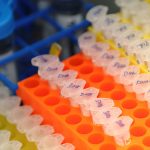 I’ve written a lot recently about the rise in genomic data, and the applications being developed on top of this. For instance, a recent project featuring IBM and the New York Genome Center (NYGC), The Rockefeller University and other NYGC member institutions.
I’ve written a lot recently about the rise in genomic data, and the applications being developed on top of this. For instance, a recent project featuring IBM and the New York Genome Center (NYGC), The Rockefeller University and other NYGC member institutions.
The work compared a number of techniques that are commonly used to analyze genomic data from tumor cells and healthy cells. It utilized Watson for Genomics technology to help interpret the genome data. The project revealed that Watson was able to provide actionable insights in just 10 minute, which compares to approximately 160 hours of human analysis.
Further evidence of the growing importance of genomic data comes via a partnership between the UK Biobank and the European Genome–phenome Archive (EGA), which is itself a joint resource developed by EMBL-EBI and the Centre for Genomic Regulation (CRG).
Genomic data
The partnership will see the data from all 500,000 participants in UK Biobank distributed via the EGA resource. Biobank participants provided blood, urine and saliva samples for future analysis – including genetic – and gave detailed information about themselves. They also agreed to allow UK Biobank to integrate information from their electronic health records.
This provides a vast quantity of data for healthcare research, with any work that results from the use of this data then made available in the public domain for other researchers to build upon.
The data is divided into two chunks. The phenotype data, including physical traits and health information, is made available directly through the Biobank. The genetic data will be available via the EGA.
“This is an incredible resource for researchers around the world who are studying human disease. By partnering with the EGA, the UK Biobank can make the data available through robust community-agreed standards and practices,” The EGA say.
“We believe that this is the single largest release of a genetic dataset in terms of number of individuals genotyped,” says Mark Effingham, UK Biobank Chief Information Officer. “The dataset is vast, but we hope it will drive innovative and exciting studies to transform research. Working with the EGA has been crucial in delivering these data quickly and efficiently, so that scientists can get on with the work of improving health.”
The rise in genomics
It’s clear that such projects are only going to rise, so a recent paper from Professor Dame Sally Davies into the current state of genomic service provision in NHS England is an interesting read.
The report examines the potential for genomics to significantly improve the health of the nation. It provides clear evidence of its potential in areas such as screening, disease diagnoses and personalized prevention services.
The paper goes on to highlight some serious shortfalls in areas such as infrastructure, public engagement, organization of research and the provision of services, before providing clear recommendations on how each of these gaps can be addressed and access to genomic services widened.
With projects such as that announced by UK Biobank becoming more commonplace, it’s a discussion that will only become more mainstream. With the value inherent in better use of this rich data source, it’s one that has to be welcomed.